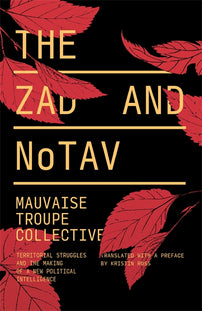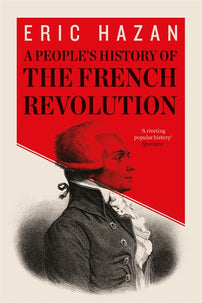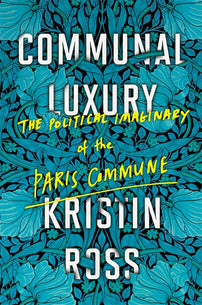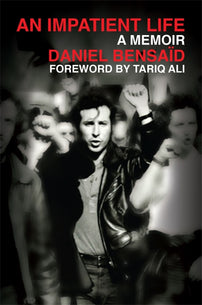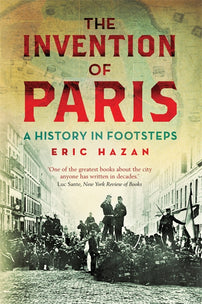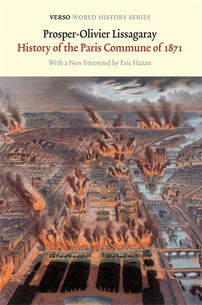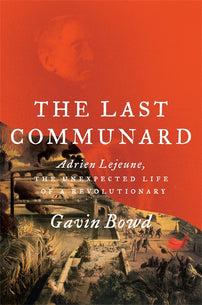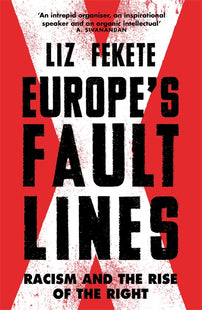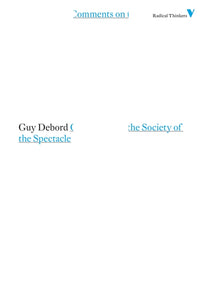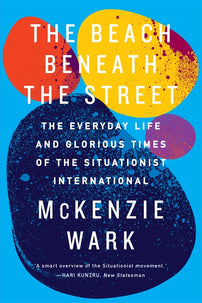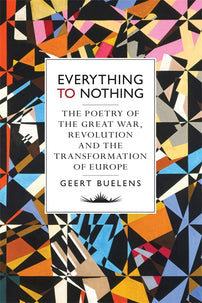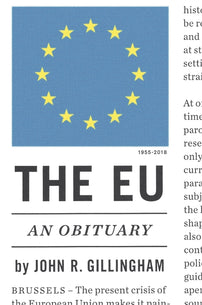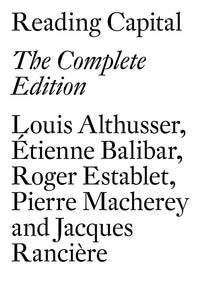French history reading list
A reading list of French history and revolutionary thought to commemorate the publication of Eric Hazan's A Walk Through Paris.
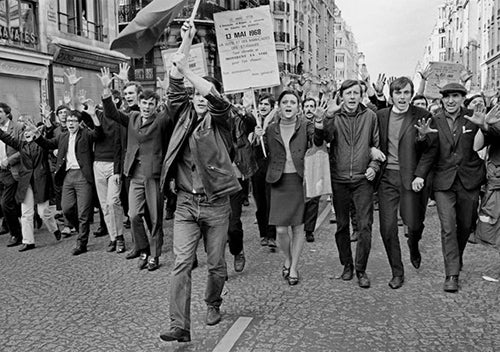
To celebrate the publication of Eric Hazan's A Walk Through Paris, we present a reading list on the history of revolutionary thought and activism in France along with critiques of the nationalist, Islamophobic trends in contemporary French politics. Featuring books by Kristin Ross, Edwy Plenel, Liz Fekete, Daniel Bensaïd, Louis Althusser, and more, this reading list will help you brush up on left French history and contemporary thought.
In A Walk Through Paris, Eric Hazan takes us through its past, present and possible futures of the city. Planning and modernization have accelerated the erasure of its revolutionary history, yet through walking and observation, Hazan shows how we can regain our knowledge of the city of Robespierre, the Commune, Sartre, and the May ’68 uprising. Drawing on his own life story, as surgeon, publisher and social critic, Hazan vividly illustrates the interplay and concord between a city and the personality it forms.
Take a radical walking tour of Paris in this virtual map where you can see landmarks like Ivry Centre, Place d'Italie, Cour du Commerce, Porte Saint-Denis and more!
[book-strip index="1" style="buy"]Eric Hazan, author of the acclaimed Invention of Paris, takes the reader on a walk from Ivry to Saint-Denis, roughly following the meridian that divides Paris into east and west, and passing such familiar landmarks as the Luxembourg Gardens, the Pompidou Centre, the Gare du Nord and Montmartre, as well as forgotten alleyways and arcades. Weaving historical anecdotes, geographical observations, and literary references, Hazan’s walk guides us through an unknown Paris. With the aid of maps, he delineates the most fascinating and forgotten parts of the city’s past and present.
[book-strip index="2" style="buy"]At a time of ever more accelerated and expanded development of natural and agricultural territory, in the aim of making targeted areas more profitable and controllable, there are inhabitants who oppose these projects with a firm, unwavering NO. This is the case in Notre-Dame-des-Landes in western France and in the Italian Susa Valley, where decades-long battles have been mounted against high-speed transport infrastructure, an airport for one, and a high-speed train (TAV) between Lyon and Turin for the other.
[book-strip index="3" style="buy"]A bold new history of the French Revolution from the standpoint of the peasants, workers, women and sans culottes.
[book-strip index="4" style="buy"]The Paris Commune was a laboratory of political invention, important simply and above all for, as Marx reminds us, its own “working existence.” Communal Luxury allows readers to revisit the intricate workings of an extraordinary experiment.
[book-strip index="5" style="buy"]In the history of European revolutions, the barricade stands as a glorious emblem. Its symbolic importance arises principally from the barricades of Eric Hazan’s native Paris, where they were instrumental in the revolts of the nineteenth century, helping to shape the political life of a continent.
[book-strip index="6" style="buy"]A philosopher and activist, eager to live according to ideals forged in study and discussion, Daniel Bensaïd was a man deeply entrenched in both the French and the international left. Raised in a staunchly red neighbourhood of Toulouse, where his family owned a bistro, he grew to be France’s leading Marxist public intellectual, much in demand on talk shows and in the press. A lyrical essayist and powerful public speaker, at his best expounding large ideas to crowds of students and workers, he was a founder member of the Ligue Communiste and thrived at the heart of a resurgent far left in the 1960s, which nurtured many of the leading figures of today’s French establishment.
[book-strip index="7" style="buy"]A radical guide to Paris through art, literature and revolution.
[book-strip index="8" style="buy"]In 1871, the working class of Paris, incensed by their lack of political power and tired of being exploited, seized control of the capital. This book is the outstanding history of the Commune, the heroic battles fought in its defence, and the bloody massacre that ended the uprising.
[book-strip index="9" style="buy"]In 1871, Adrien Lejeune fought on the barricades of the Paris Commune. He was imprisoned for treason when the Commune fell and narrowly avoided execution for his role in the struggle for a new future. In later life, he immigrated to Soviet Russia, finding fame as a revolutionary icon. In his native country, he was vaunted as a hero, a touchstone of revolutions past during France’s interwar dramas.
[book-strip index="10" style="buy"]Separate and Dominate is Delphy’s manifesto, lambasting liberal hypocrisy and calling for a fluid understanding of political identity that does not place different political struggles in a false opposition. She dismantles the absurd claim that Afghanistan was invaded to save women, and that homosexuals and immigrants alike should reserve their self-expression for private settings. She calls for a true universalism that sacrifices no one at the expense of others.
[book-strip index="11" style="buy"]Old racisms may be structured deep in European thought, but they have been revitalised and spun in new ways: the war on terror, the cultural revolution from the right, and the migration-linked demonisation of the destitute “scrounger.” Drawing on more than three decades of work for the Institute of Race Relations, Liz Fekete exposes the fundamental fault lines of racism an tarianism in contemporary Europe.
[book-strip index="12" style="buy"]In the French port town of Calais, famous for its historic lace industry, a city within a city arose. This new town, known as the Jungle, was home to thousands of refugees, mainly from the Middle East and Africa, all hoping, somehow, to get to the UK. Into this squalid shantytown of shipping containers and tents, full of rats and trash and devoid of toilets and safety, the artist Kate Evans brought a sketchbook and an open mind. Combining the techniques of eyewitness reportage with the medium of comic-book storytelling, Evans has produced this unforgettable book, filled with poignant images—by turns shocking, infuriating, wry, and heartbreaking.
[book-strip index="13" style="buy"]Fire and Blood looks at the European crisis of the two world wars as a single historical sequence: the age of the European Civil War (1914–1945). Utilizing multiple sources, Enzo Traverso depicts the dialectic of this era of wars, revolutions and genocides. Rejecting commonplace notions of “totalitarian evil,” he rediscovers the feelings and reinterprets the ideas of an age of intellectual and political commitment when Europe shaped world history with its own collapse.
[book-strip index="14" style="buy"]A piercing denunciation of Islamophobia in France, in the tradition of Emile Zola,
[book-strip index="15" style="buy"]First published in 1967, Guy Debord’s stinging revolutionary critique ofcontemporary society, The Society of the Spectacle has since acquired a cult status. Credited by many as being the inspiration for the ideas generated by the events of May 1968 in France, Debord’s pitiless attack on commodity fetishism and its incrustation in the practices of everyday life continues to burn brightly in today's age of satellite televisionand the soundbite.
[book-strip index="16" style="buy"]Over fifty years after the Situationist International appeared, its legacy continues to inspire activists, artists and theorists around the world. Such a legend has accrued to this movement that the story of the SI now demands to be told in a contemporary voice capable of putting it into the context of twenty-first-century struggles.
[book-strip index="17" style="buy"]Everything to Nothing is the award-winning panoramic history of how nationalism and internationalism defined both the war itself and its aftermath—revolutionary movements, wars for independence, civil wars, the treaty of Versailles. It reveals how poets played a vital role in defining the stakes, ambitions and disappointments of postwar Europe.
[book-strip index="18" style="buy"]From its postwar origins, through the Single Market, to the troubles of the present, Gillingham explains how Europe’s would-be government became a force for anti-democratic centralization and inept policy-making. Brussels has inspired a world of illusion that now threatens to undo the undoubted achievements of integration. The EU: An Obituary is an urgent call to the political Left, Right, and Centre to act before it is too late.
[book-strip index="19" style="buy"]Previously only available in English in highly abridged form, this edition, appearing fifty years after its original publication in France, restores chapters by Roger Establet, Pierre Macherey and Jacques Rancière. It includes a major new introduction by Étienne Balibar.
